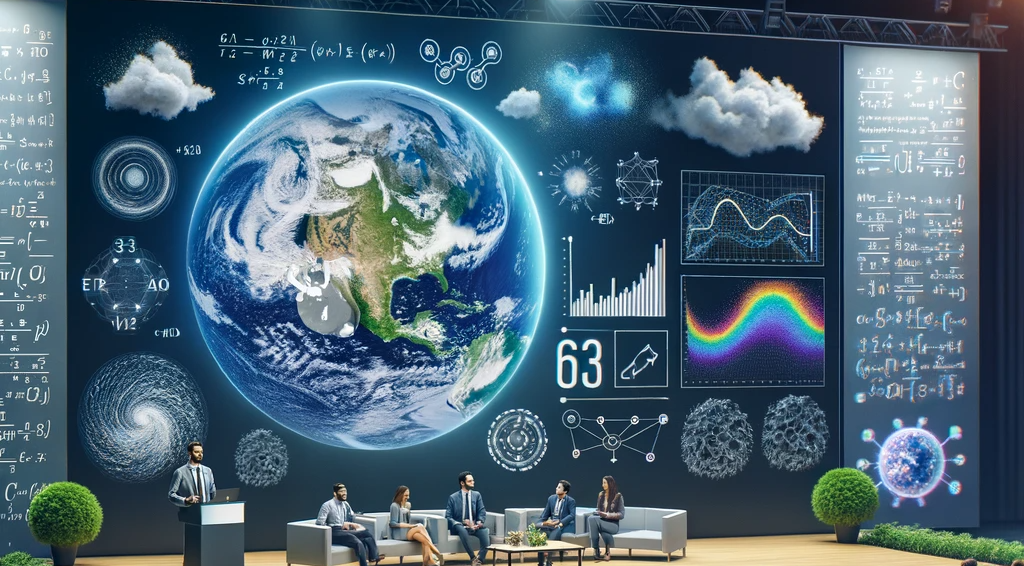Organizers:

1. Sameh Abdulah, Research Scientist, Extreme Computing Research Center (ECRC), King Abdullah University of Science and Technology (KAUST).
2. Didem Unat, Associate Professor, Koç University, Turkey.
3. Ebru Bozda, Assistant Professor, Geophysics Department, the Colorado School of Mines, US.
4. Auroop Ganguly COE Distinguished Professor, Civil and Environmental Engineering, Northeastern University.
5. Andreas Herten, Researcher, Jülich Supercomputing Centre, Jülich, Germany
Abstract:
The growth of climate and earth data brings a pressing need to enhance techniques for its handling with HPC. This is crucial for understanding the coupling between the solid Earth, atmosphere, hydrology, and oceans, enabling proactive responses to extremes through improved forecasting of weather, climate change, and sudden disasters like earthquakes. This BoF will discuss the HPC community’s interface with earth data and related engagements of stakeholder communities in climate, environmental, and Earth sciences, including the mathematics and spatial statistics involved. It endeavors to begin a targeted approach to the democratization of HPC for earth sciences.
Description:
Over the years, weather, climate, hydrology, and ground motion predictions have relied heavily on developing precise numerical models that capture the underlying dynamical equations of meteorology and geophysics. These models have been instrumental in conducting climate simulations and enabling reasonably accurate meteorological forecasts. Progress in mathematics, spatial statistics, Earth sciences, and, more recently, machine learning has collectively contributed to significant advancements in weather and climate forecasting, disaster prediction, as well as physics-based modeling and simulation.

The advent of high-performance computing (HPC) has revolutionized geophysical and environmental applications. Over the past decade, HPC scientists have significantly expanded the capabilities of existing models to provide a profound understanding of the Earth’s dynamics that was unimaginable just a few years ago. HPC has a pivotal role in other aspects of Earth science applications: our understanding of the coupling between the solid Earth, atmosphere, hydrology, and oceans. Geodynamical modeling of Earth’s internal processes from crust to core by imaging the multi-scale structure of Earth’s interior using seismic data (earthquakes, nuclear explosions, etc.) enabled better understanding of the mechanism behind surface processes of earthquakes and volcanism. Benefits range from mitigating their associated hazards, through industrial applications of oil, gas, and mineral explorations with economic significance and CO2 sequestration problems, to geothermal energy opportunities. While the HPC community has made significant contributions to various Earth science fields, it is evident that there is much room for broader engagement in the Earth sciences to address
Earth’s challenges. Earth sciences and especially disciplines that interact with measurement data have yet to broadly embrace HPC. Thus, we propose organizing this BoF session to facilitate a meaningful discussion between HPC researchers and experts in environmental and Earth sciences, including the mathematics and spatial statistics communities that are involved, to democratize the use of HPC within these communities. We will emphasize the importance of disaster prediction where HPC and large-scale measurement data can play a crucial role in mitigating the impact of environmental disasters. The primary objective of this BoF session is to foster broader collaboration, knowledge sharing, and innovation at the intersection of HPC and environmental and Earth sciences. Specifically, we plan to document current challenges in the community’s tools and its’ participation in HPC, and to select a small number of priority directions along with community leaders who are interested in shepherding them. Beyond repeating such a BoF session submission for next year’s SC24 to reflect upon and refine the selected directions, another long-term goal by the organizers is to use the directions
to plan a workshop also for submission to SC24 to showcase such tools and research to broaden HPC use in the Earth sciences.
The BoF format
To kick-start the event, the organizers will deliver a concise presentation, setting the stage with discussion points and providing an overview of the challenges they perceive in the current collaboration between HPC, environmental science, and Earth science fields. This introductory presentation will serve as a foundation for the subsequent discussion and identification of further challenges by the attendees.
Most of the session time will be spent in moderated interactive discussions of the challenges presented and additions of further challenges from the attendees. The final ten minutes will be spent prioritizing the generated list, identifying potential leaders and potential projects in progress that are already addressing them.
In conducting this BoF and in the selection of current challenges, we will foster an inclusive environment that is cognizant of diversity with respect to gender, race, and geographic location, as well as a diversity of disciplines contributing to broader HPC use in the Earth sciences.
